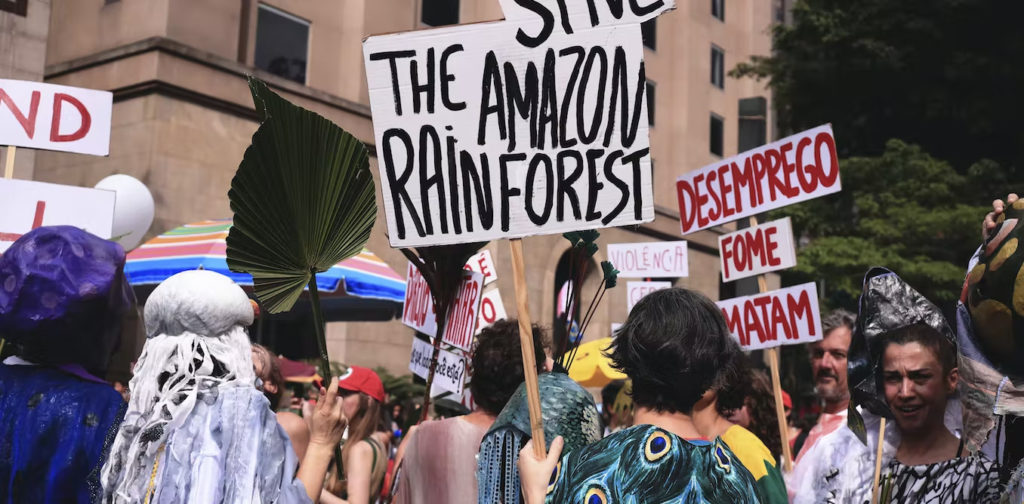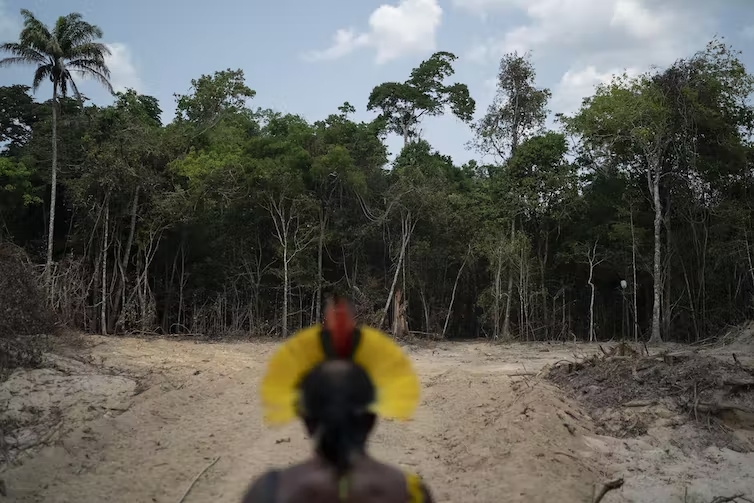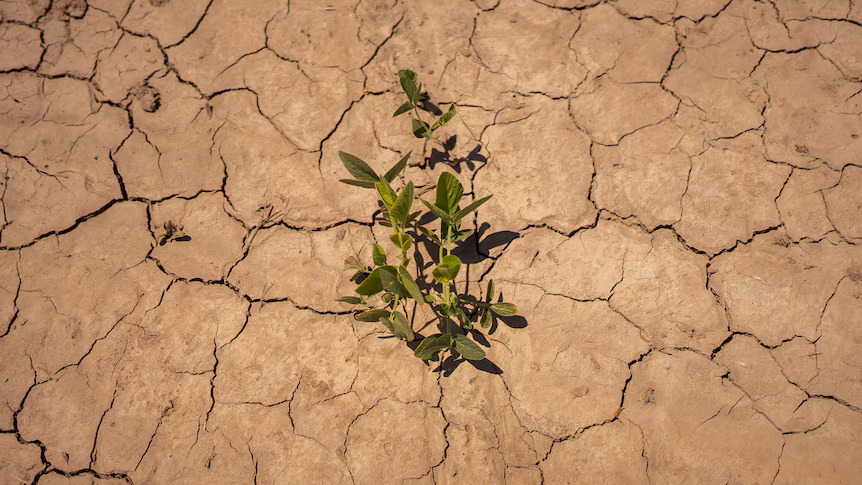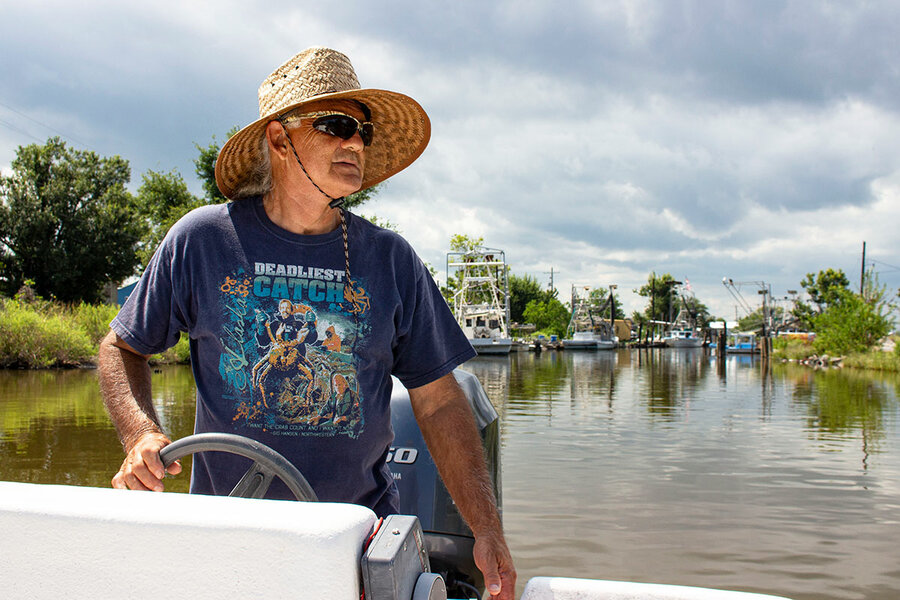Original publication by Kathryn Baragwanath for theconversation.com on 2 November 2022

Ettore Chiereguini/AP/AAP
Brazil’s presidential election result is crucial for the future of the world’s forests. On Sunday, former president and Workers Party candidate Lula da Silva narrowly beat the incumbent, Jair Bolsonaro. Deforestation rates had surged under Bolsonaro.
Bolsonaro was elected in 2018 on an explicitly anti-environmental platform. He had promised to reduce environmental oversight, halt Indigenous land demarcations and allow the extraction of resources from protected areas in the Amazon. Lula’s victory speech signalled a strong commitment to preserving the Amazon, protecting Indigenous people’s rights and reaching a zero-deforestation target.
During Bolsonaro’s first three years in office, 33,200 square kilometres of forest was cleared. That’s an area two-and-a-half times the size of the Greater Sydney region.
Some researchers argue that the Amazon might be nearing its tipping point if current clearing rates continue. That would mean the rainforest loses resilience to changes in climate and land use. It would have profound effects on biodiversity, carbon storage and climate change globally.
Lula’s victory speech marks a clear departure from Bolsonaro’s rhetoric. It’s a welcome shift in the lead-up to the United Nations climate conference, COP27, which starts in Egypt on Sunday. But Lula still faces stiff challenges in delivering his promise to protect the rainforest.
Deforestation surged in the past decade
The Amazon, covering 5.5 million square kilometres, accounts for half of the world’s remaining tropical rainforest. It’s home to enormous biodiversity, has a major influence on the world’s climate and hydrological cycles and acts as a carbon sink.
Preserving the Amazon is crucial for achieving the goal of limiting global warming to 1.5℃ above pre-industrial levels – the goal of the Paris Agreement.
About 60% of the Amazon rainforest is in Brazil. This means the nation’s political shifts have enormous repercussions for this biome and, in turn, for the world’s climate.
Lula’s election creates a possibility of ending the destruction of the forest. In his first two terms in office (2003-10), Lula oversaw significant reductions in forest clearing.
Important environmental policies were enacted in Lula’s first term. Remote sensing was used for real-time monitoring of the Amazon. Protected areas and Indigenous territories were greatly expanded.
Other notable policies included a strategic focus on monitoring and enforcement in areas with high deforestation rates, re-establishing and regulating a system of environmental sanctions, and making compliance a condition of financial aid.

Forest clearing was reduced by more than 80% between 2004 and 2012. However, the 2012 Forest Code relaxed some of the rules for conservation on private lands and granted amnesty for prior deforestation. Rates began to rise again.
The election of Bolsonaro accelerated this upward trend. He cut funding for the environmental agency and attempted to allow mining on Indigenous lands and protected areas. An area of rainforest the size of Greater Sydney was cleared last year alone. It was the worst loss in nearly two decades.
What this election means for the rainforest
Lula’s vigorous promises to protect the Amazon are unprecedented in Brazilian politics. His victory speech provides hope for the future of the rainforest. International pressure to preserve the Amazon, coupled with an active and organised Indigenous movement and civil society, are on his side.
However, Lula still faces an uphill battle in his efforts to halt deforestation. The challenges include:
- a weakened environmental agency: Bolsonaro-appointed officials refused to make use of allocated funds and in 2020 the agency hit an all-time low of 591 enforcement agents (down from 989 in 2016), following a 29% cut in 2019
- a rise in land-related violence: this includes land invasions and violence against environmental activists and Indigenous peoples
- entrenched organised criminal groups with interests in deforesting the Amazon
- a conservative-dominated Congress: Lula needs its assent to pass environmental laws
- a large agricultural caucus: congressmen from diverse parties are the largest organised coalition in Congress and have been pushing for changes to environmental licensing laws, land regulations and the rules governing Indigenous land demarcations
- a pause in much-needed international support: most notable is the Amazon Fund, set up in 2008 by Norway and Germany. Donors paused this funding in 2019 after Bolsonaro abolished the fund’s technical committee amid record high deforestation rates and massive forest fires. Norway (which has donated more than $1.2 billion) has already signalled it wishes to resume climate co-operation once Lula takes office.
What’s more, Lula secured only a narrow election victory and is taking over a country split in half. He will have to design innovative policies that link environmental concerns with sustainable development and economic opportunities. Only then will he win over a polarised nation.
The next four years will be crucial for Brazil and the world. Brazil has once before reduced deforestation. The new government will need to draw lessons from its previous success, while also learning from recent policy failures.
The situation is challenging for the incoming president. But it also presents a great opportunity to re-establish Brazil’s standing in the world and rebrand its agricultural exports as sustainable and just.




